How to Treat IBS with the Help of Natural Remedies
Irritable Bowel Syndrome or IBS, is a gastrointestinal disorder caused due to various reasons, majorly due to unhealthy eating. According to research(1), IBS is one of the most common types of gastrointestinal disorder affecting over 10% of the population.
Common IBS symptoms include diarrhoea, constipation, bloating, abdominal pain, changes in bowel movements, and food intolerance. There are different remedies and drugs available to stop IBS, and once you find a remedy that works, it can help alleviate the discomfort.
Table of Contents
How to Treat IBS with Naturopathic Remedies
- Home Remedies
- Foods
- Essential Oils
- Herbs
- Alternative Treatments
Can natural remedies treat IBS?
IBS is commonly caused by stress and an unhealthy diet, both of which are preventable with some lifestyle changes. Natural remedies have been around for a long time, and there are a lot of such remedies available for IBS.
An effective and common remedy to IBS is making healthy eating choices, such as consuming whole, natural foods, and avoiding preserved foods.
CURE 1: Home Remedies for IBS
Many people prefer home remedies over drugs, and there are many natural treatments for IBS that you can practice for self-treatment.
1. Include More Fiber
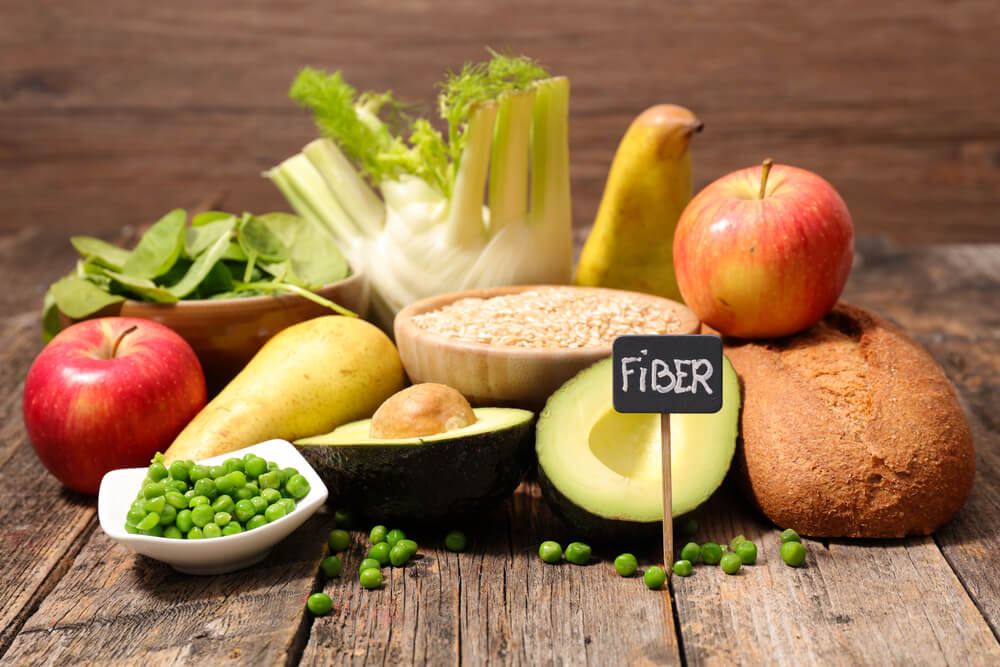
Why is it effective?
Fibre can help with constipation, but in some cases, it can cause gas. Instead of consuming them all at once take fibrous food gradually over a period of a few weeks.
How to use?
Fruits can be had as a snack or in a salad, while vegetables can be included in your curry or sandwich.
How much to use?
One fibre-rich fruit a day in a salad or as a snack is enough fibre for IBS.
2. Limit the Use of Laxatives
Why is it effective?
Over the counter IBS laxatives can help relieve IBS, but only if taken right. Milk or magnesium, for example, can make your IBS worse if taken at the wrong time.
How to use?
Take any laxative 20 minutes before a meal, which will avoid IBS symptoms.
IBS can affect anyone, men, women, or children, affecting two in three women and one in three men.
CURE 2: Foods for IBS
Irritable bowel syndrome is related to your gut and stomach, so what you eat is the most important when it comes to stop IBS. These foods for IBS will help you stay healthy and avoid IBS.
1. Lean Meat
Why is it effective?
Lean meats contain mostly protein, which is easily digested and also doesn’t get fermented by gut bacteria. Fatty meat contains toxins and inflammatory fats that will irritate your stomach. White meat chicken and turkey, lean beef, and pork are all lean meats, and you can consume them without worry.
How to use?
A grilled chicken with salt seasoning or a slice of beef with your breakfast is a healthy way to consume lean meats.
How much to use?
Eating too much meat is not healthy, so limit your meat intake to twice a week.
2. Eggs

Why is it effective?
Eggs are another source of protein and are also easily digestible, making them a healthy diet for IBS. Before taking eggs, check if the yolk doesn’t cause any irritation in your gut since not everyone reacts the same way to all foods.
How to use?
Poached, hard-boiled, and soft-boiled are all good ways to consume eggs in your breakfast.
How much to use?
One egg a day three to four times a week is recommended for IBS patients.
3. Fish
Why is it effective?
While not all fish may be helpful, fish high in Omega-3s are beneficial for IBS. Omega-3s help curb inflammation in your body, which is a cause of IBS. Black cod, herring, sardines, wild-caught salmon are types of fish that are high in Omega-3s.
How to use?
A fish can make a full meal, like grilled fish for dinner.
How much to use?
Limit your fish intake to once a week.
4. Carrots and Corn
Why is it effective?
Many people with IBS complain that vegetables worsen inflammation, but not all vegetables do that. In fact, vegetables are required for your body and can help treat IBS. A category of vegetables called Fod-Map vegetables was introduced by Monash University. This has proven to treat and reduce symptoms of IBS. Apart from carrots and corn, this category of vegetables includes broccoli, bell peppers, eggplant, and green beans, as well.
How to use?
Eating these vegetables cooked is better than taking them raw. Eating boiled vegetables if also healthy.
How much to use?
Anyone of these vegetables in this list can be taken once a day.
5. Fod-Map Fruits
Why is it effective?
Just like vegetables, many people with IBS complain that fruits cannot be easily digested. Fruits have high fiber content, making them healthy for IBS. Fod-Map fruits like bananas, grapes, kiwi, lemon, and avocado are beneficial for victims of IBS.
How to use?
One fruit a day as a snack or in your salad are healthy options.
How much to use?
Too much fruit in a day or at a time can overwhelm your body’s ability to absorb the sugars, so limit your intake to one fruit a day.
6. Nuts

Why is it effective?
Nuts contain, protein fiber, and omega-3s, all of which are good for treating IBS. Nuts also help you feel satisfied after a meal, thus preventing unhealthy snacking. They also have unsaturated fats, which is good for your gut flora.
How to use?
Take a handful of nuts after a meal or as a snack. Nut butter is also healthy.
How much to use?
Limit your nuts intake to a handful of nuts once a day.
Also Read: Health Benefits of Eating Nuts
7. Chia Seeds
Why is it effective?
For those who suffer from constipation as a result of IBS, chia seeds are a healthy choice. It contains fiber and omega-3s, both of which are good for IBS.
How to use?
Sprinkle some chia seeds or its powder in your salad, or add it on your sandwich for added taste.
How much to use?
A spoonful of chia seeds, in any form, is the recommended intake.
8. Apple cider vinegar for IBS
Why is it effective?
Apple cider vinegar is good for IBS since it has anti-inflammatory and anti-fungal properties which help clean your gut. It contains probiotics which help keep your gastronomical system healthy.
How to use?
In a glass of water, take two spoons of apple cider vinegar on an empty stomach.
How much to use?
A spoonful of apple cider vinegar daily is the recommended intake.
9. Bone Broth
Why is it effective?
Bone broth made from fish or meat is a staple diet since ancient times. The nutrients in these broths are good for the intestinal lining. But, the ready-made broth contains preservatives, which can do more harm than good, so try to take home-made broth only.
How to use?
A warm cup of broth makes a good snack or an appetizer.
How much to use?
You can take a cup of bone broth two to three times a week.
10. Low-Fat Yogurt for IBS
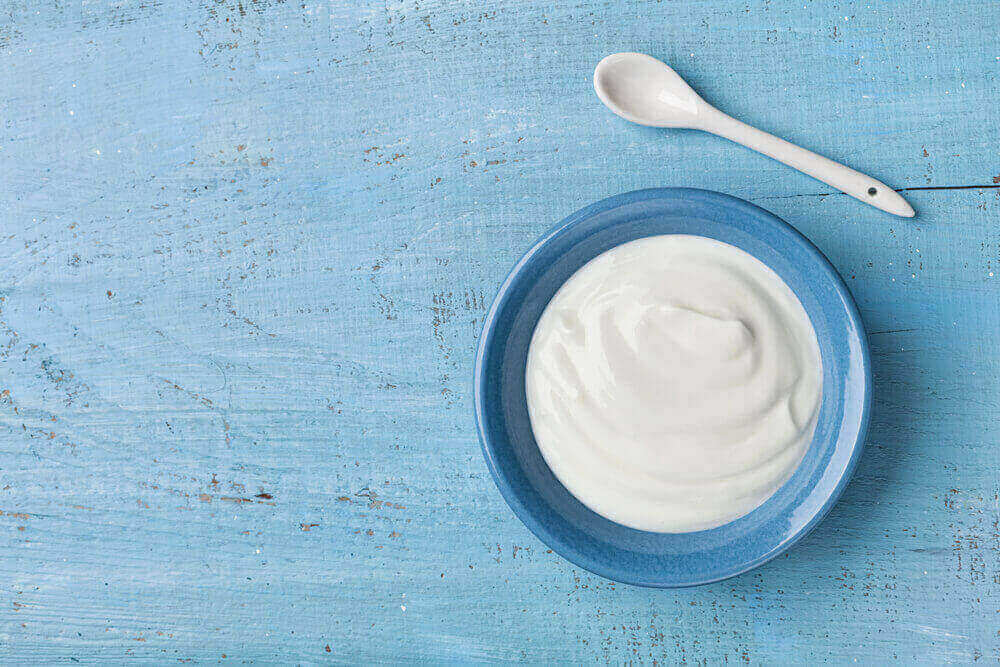
Why is it effective?
Yogurt contains probiotics, which can improve your gut health. But the full-fat yogurt also contains fat, which is not a healthy choice for IBS, so opt for the low-fat version to avoid unhealthy fats. If dairy products hurt your intestines, consult your doctor before taking.
How to use?
You can add the yogurt to your salad or take it as a light snack.
How much to use?
Limit yogurt intake to one cup for one to two times a week, since too much of it can irritate your digestive system.
The treatment for IBS differs from person to person, depending on your symptoms.
CURE 3: Essential oils for IBS
Essential oils are extracted from plants and their roots and have been known to provide relief from many health problems, including relief from IBS. Here are some essential oils for IBS patients to help improve the symptoms.
1. Peppermint tea for IBS
Why is it effective?
Peppermint oil has antiseptic properties and is one of the most common oils recommended for relief from IBS. It can help treat nausea, abdominal pain, and indigestion. Also, it is a great stress-reliever, which often causes IBS.
How to use?
Dilute peppermint oil with a carrier oil and apply it onto your skin. To get relief from stress or nausea, you can inhale the oil directly.
How much to use?
Two to three drops of peppermint oil mixed with a carrier oil should be massaged onto the skin four to five times a week.
2. Rose Oil
Why is it effective?
This sweet-smelling oil contains geraniol, which suppresses pathogens in your intestines. It also aids in the production of good bacteria.
How to use?
You can apply rose oil directly onto the skin and add it into your bathwater.
How much to use?
Massage three to four drops of it onto your skin every day.
3. Cumin Oil
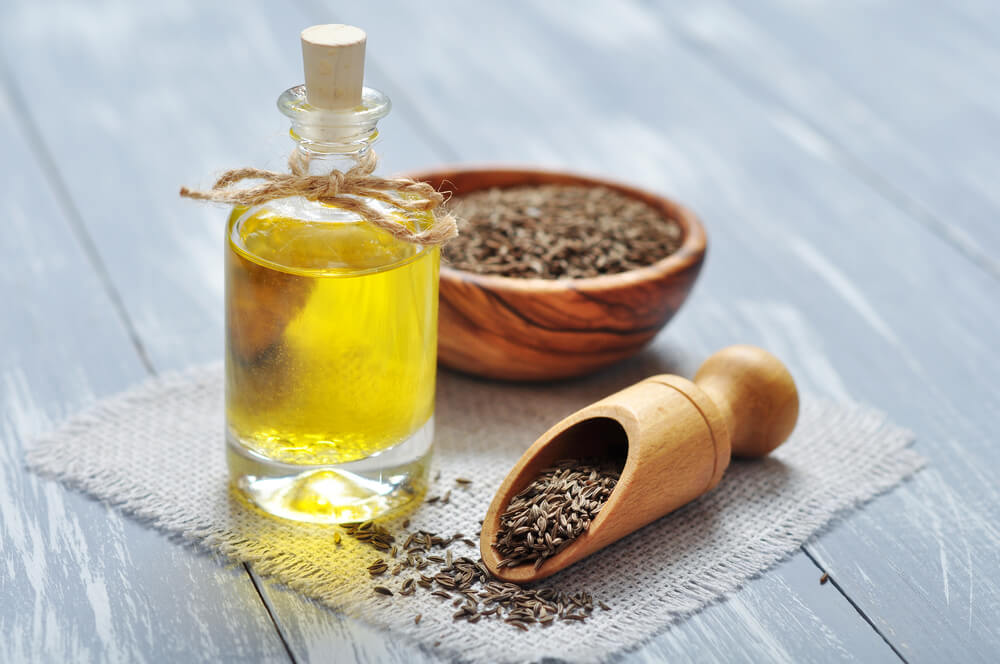
Why is it effective?
Cumin oil has anti-spasmodic and pain-relieving properties, making it a good choice for IBS patients. It also stimulates gastric acids in the body to improve digestion.
How to use?
The oil should be mixed with a carrier oil before massaging onto the skin. You can also add a few drops of it into your room diffuser.
How much to use?
Two to three drops of cumin oil two to three times a week is sufficient to stop IBS.
4. Lemon Balm Oil
Why is it effective?
Apart from peppermint, lemon balm oil is the second most potent when it comes to fighting bacteria and inflammation.
How to use?
Being potent, the oil should be added to a carrier oil before applying topically.
How much to use?
Two to three drops of lemon balm oil four times a week should be used for healthy intestines.
5. Oregano Oil
Why is it effective?
Oregano oil also contains anti-spasmodic and anti-microbial properties, which makes it a good choice for improving digestion.
How to use?
Take two to three drops of oregano oil in a cotton ball and massage it onto your skin.
How much to use?
You can safely use oregano oil two to three times every week.
6. Ginger Oil for IBS
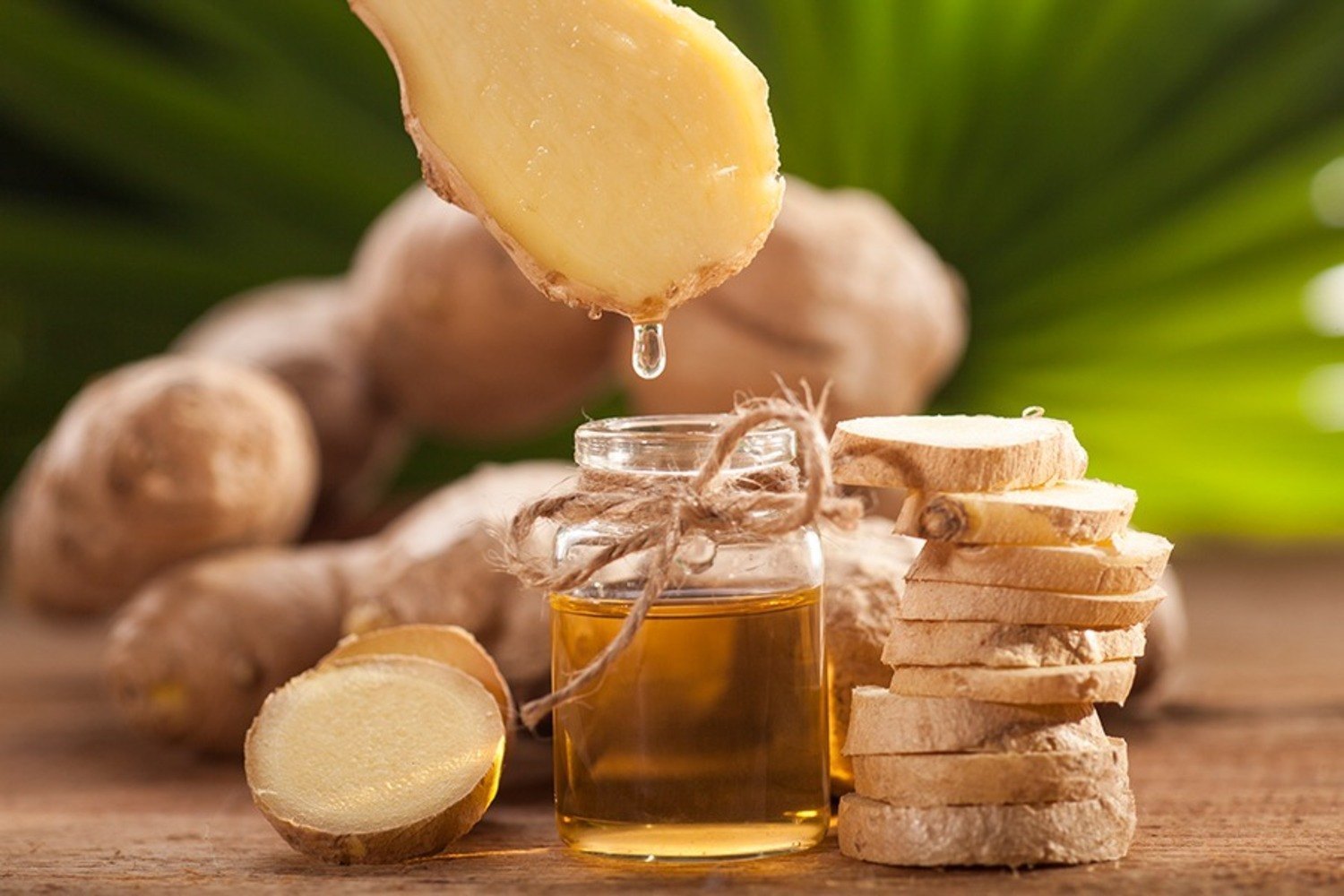
Why is it effective?
Ginger oil has antiseptic and anti-inflammatory properties, which can help soothe your intestines. It is also added to many dishes, but it stimulates appetite, so be careful with how much you use.
How to use?
Add six to seven drops of the oil in your bath water and soak for 20-30 minutes to absorb the benefits of this oil.
How much to use?
Taking a bath with ginger oil one to two times a week is good for IBS.
7. Fennel Oil
Why is it effective?
Fennel oil helps bacteria in the gut. It also has anti-spasmodic properties and helps release trapped gases, thus improving digestion.
How to use?
Add two to three drops of fennel oil to a steaming bowl of water and cover your head with a towel. Now inhale the steam for a few minutes.
How much to use?
You can do a steam exercise with fennel oil twice a week.
8. Lavender Oil
Why is it effective?
This soothing oil is used to relieve stress, a common cause of IBS. It also has anti-microbial properties and kills some germs and bacteria in the stomach.
How to use?
You can apply the oil directly onto your skin to get relief from pain. Or, for treating stress, you can add it to your room diffuser.
How much to use?
Apply two to three drops of lavender oil onto your skin every day.
9. Anise Oil
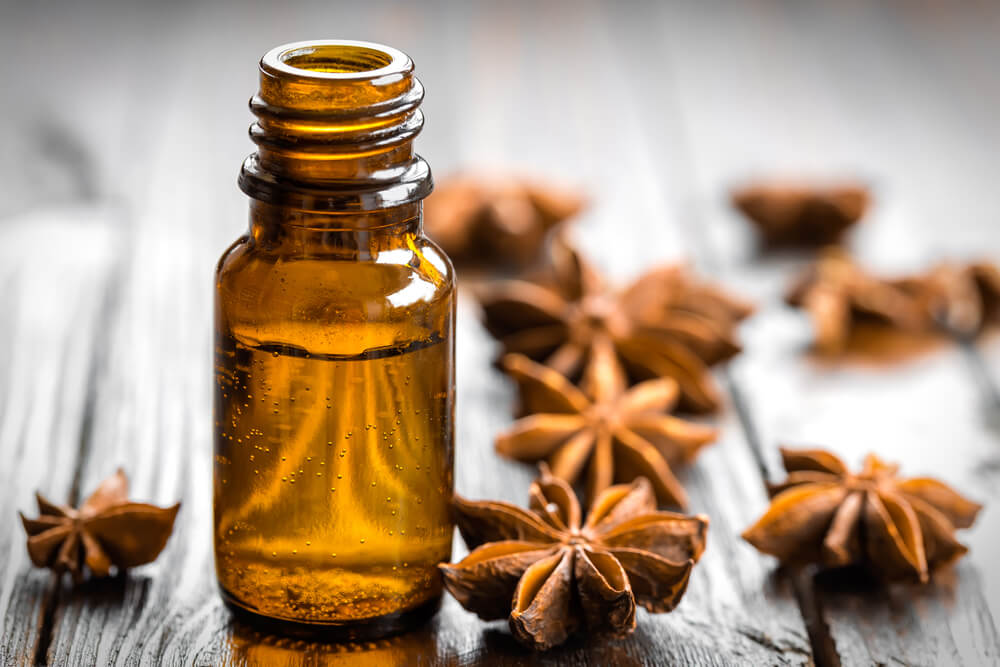
Why is it effective?
Anise oil is extracted from the Mediterranean spice anise, which is used as a digestive aid. Like the spice, anise oil also aids with improving digestion and relieves bloating and abdominal pain.
How to use?
Add two drops of the oil to herbal tea to get relief from IBS symptoms.
How much to use?
You can take anise infused herbal tea three times a week.
10. Thieves Oil
Why is it effective?
This is not an individual oil but a combination of rosemary, lemon, cloves, and eucalyptus. All of these oils combined have strong antioxidant properties.
How to use?
You can add two drops of the oil to a vegetarian capsule and take it with a glass of water.
How much to use?
The thieves oil combination can be taken three to four times a week.
11. Frankincense Oil
Why is it effective?
This oil has strong anti-fungal properties, which help keep your digestive tract healthy. It is also used to treat cramping and gas.
How to use?
Mix two drops of frankincense oil in one spoon honey and take it orally.
How much to use?
Take this honey and frankincense mix four times a week.
Irritable bowel syndrome is different from inflammatory bowel disease, even though the symptoms may seem similar.
Also Read: The Best Essential Oils to Treat Stress
CURE 4: Herbs for IBS
Natural remedies for IBS have been proven to provide relief from its symptoms and herbs are the most helpful of these remedies. Below are some herbs for IBS patients.
1. Slippery Elm

Why is it effective?
Slippery elm has been used to improve digestion for a long time. It calms the irritation on the intestinal line and also relieves diarrhea. When consumed regularly, slippery elm softens the stool, thus helping constipation.
How to use?
Slippery elm is available in capsule form, but be sure to take it at least an hour before or after taking any other medication, as it is known to interrupt the effect of some medicines.
How much to use?
The appropriate dose differs from person to person, so consult your doctor before taking it.
2. Aloe Vera
Why is it effective?
Aloe vera is considered a soothing herb and has been used for many disorders. It has anti-inflammatory properties and helps relieve constipation.
How to use?
Drink a spoon of aloe vera extract every morning on an empty stomach for the best result. Aloe vera juice is also helpful.
How much to use?
Take a spoonful of aloe vera extract every morning.
3. Artichoke Leaf Extract
Why is it effective?
This extract helps reduce bowel movements caused due to constipation and diarrhea. This is because it contains chloropicrin, an anti-spasmodic compound. The chemicals in artichoke leaf extract also help protect the liver.
How to use?
This extract can be taken in powder or capsule form with a glass of water.
How much to use?
The recommended intake is 320 mg once a day.
4. Herbal Teas

Why is it effective?
Many herbal teas have been known to ease IBS symptoms. They can relax your abdominal muscles and relieve cramps. Taking tea can also increase your liquid intake, thus improving digestion.
How to use?
Peppermint tea is the most potent for treating IBS. Take a cup of peppermint tea every day when you feel hungry.
How much to use?
A cup of tea one to two times a day can help relieve IBS.
5. Turmeric for IBS
Why is it effective?
Turmeric contains a powerful anti-inflammatory compound called curcumin. Thus, it helps fight infections in the stomach. Turmeric can also improve bowel movements and abdominal pain.
How to use?
Take one spoon of turmeric in a glass of water on an empty stomach. It is a spice and can be added to any recipe.
How much to use?
One spoon of turmeric can be taken every morning.
6. Fennel Seeds
Why is it effective?
Fennel herb is used for treating many disorders, including IBS. It has anti-spasmodic properties which help improve bowel movement and bloating. It also aids in better digestion.
How to use?
Fennel seeds should be grounded to a powder, which can be added to your salad or any recipe for extra flavor.
How much to use?
One spoon of ground fennel seeds every day is the recommended intake.
7. Ginger
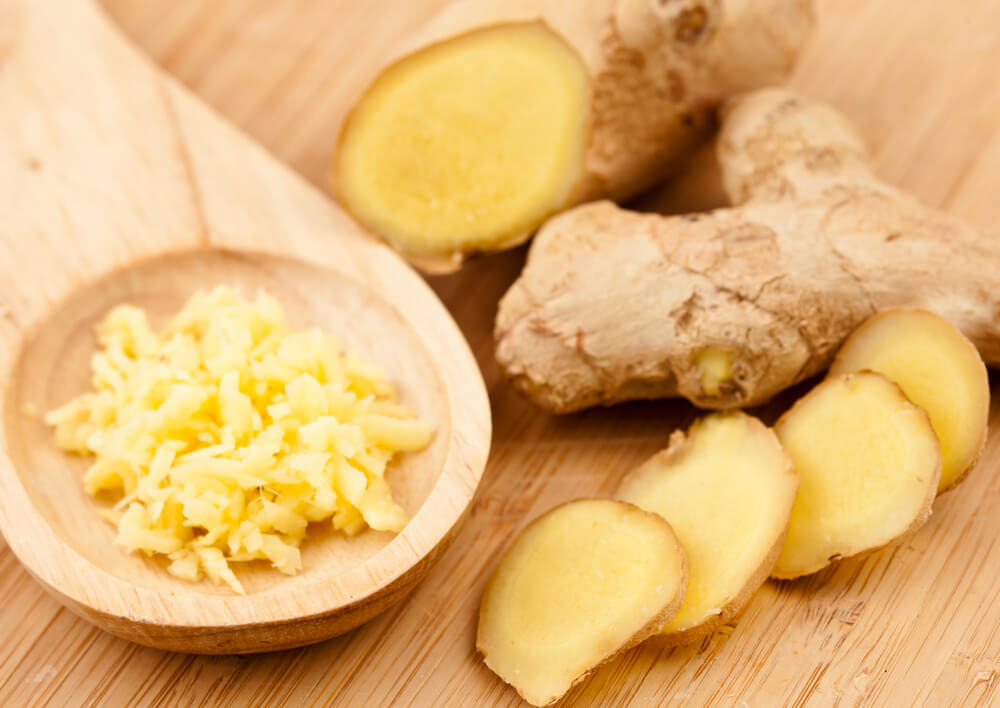
Why is it effective?
Ginger is a potent herb when it comes to getting rid of IBS. It helps soothe sensitivity in the stomach and improves digestion.
How to use?
Ginger can be added to Chinese or Thai recipes or in any curry to add more taste to it.
How much to use?
Ginger is generally good for health, so there is no recommended intake.
Stress is not the only cause of IBS, though it is the most common one.
CURE 5: Alternative Treatments for IBS
If traditional clinical medicine is not for you or if you are looking for an alternative treatment for IBS, there are many alternative therapies you can try.
1. Exercise
Why is it effective?
Working out is a great way to relieve stress and also improve blood circulation, thus aiding indigestion. Moving around when your experience IBS is the quickest way to get rid of IBS. Consistently working out can also improve your heart and overall health. If you are new to exercising, start by brisk walking and make your way up.
How to use?
Cycling or swimming is not as intense as full-body cardio, but these gentle exercises are exactly what IBS patients need. Basically, any moves that engage multiple joints are beneficial.
How much to use?
American Heart Association(2) recommends 30 minutes of exercise five times a week.
2. Yoga for IBS

Why is it effective?
Any form of gentle exercise is helpful for IBS, even though moving around might be the last thing you want to do. It can also relax your muscles reduce stress. Below are some yoga asanas that can help to get rid of IBS.
How to use?
Downward dog:
Bend on all fours with your hands level with your shoulder and knees level with your hips. Walk your hands forward then inhale and press forward. Press down on your hands and straighten your legs.
Cobra pose:
Lie down on your stomach. Place your hands next to your chest with palms flat on the floor. Raise your torso upwards and hold for five seconds. Exhale and come down slowly.
How much to use?
Yoga calms your entire body and practicing yoga two to three times is beneficial for IBS patients.
3. Relaxation Techniques
Why is it effective?
Relaxation techniques can calm your mind and help relieve stress, which is a common IBS trigger.
How to use?
Breathing exercises:
Inhale through your nose slowly with the count of four seconds. Then exhale on the count of four seconds. Repeat two to three times.
Imagery:
This calming technique is recognized by the International Foundation for Functional Gastrointestinal Disorders(3). It involves relaxing your mind and imagining calming scenery.
How much to use?
You can practice any relaxing technique whenever you feel stressed or when dealing with IBS symptoms.
4. Acupuncture for IBS
Why is it effective?
Acupuncture is an ancient Chinese remedy that focuses on balancing the energy in your body. If there is any problem in your health, this practice focuses on removing the problem that causes disruption in your internal energy.
How to use?
There are certain pain points for every disorder, and the Acupuncture practitioner will insert needles into these pain points to treat IBS.
How much to use?
The acupuncture practitioner will advise you on the amount of treatment you need, based on your symptoms.
5. Acupressure
Why is it effective?
Acupressure is another form of Chinese medicine which believes in maintaining the balance in your internal energy. Unlike acupuncture, acupressure does not involve the use of needles, but instead, the pressure to the pain points.
How to use?
A common acupressure point for IBS is Sea of Energy, which is located two fingers width below the belly button. Massaging this point can help improve digestion and soothe abdominal pain.
How much to use?
Acupressure is a self-care remedy, and you can use it whenever you get the symptoms of IBS.
6. Supplements for IBS
Why is it effective?
Probiotics are essential for getting relief from IBS symptoms. Probiotics are the good bacteria in the body required for digesting food. A deficiency in probiotics can trigger IBS. Another nutrient whose deficiency can cause IBS is magnesium. This is a laxative which can help improve bowel movements.
How to use?
Supplements can be taken in tablet form before or after a meal.
How much to use?
It is recommended to consult with a doctor before starting a supplement since too much of them can cause diarrhea.
7. Psychotherapy

Why is it effective?
Stress is a common cause of IBS, and cognitive behavioral therapy can help you deal with stress effectively. It improves not only productivity but also the quality of life.
How to use?
This therapy involves the use of imagery and visualization to help relieve stress.
How much to use?
Generally, a psychotherapy session lasts for an hour and is conducted one to two times a week.
8. Hypnosis
Why is it effective?
Hypnotherapy is a mental relaxation technique, which also helps treat IBS symptoms. It stimulates the autonomic nervous system and improves digestion.
How to use?
In a hypnosis session, the practitioner helps you relax completely then induces your subconscious to relieve stress and boost the spirit.
How much to use?
Your hypnotherapist will suggest the required sessions based on your response and symptoms.
9. Tai Chi
Why is it effective?
Tai Chi is another Chinese remedy. It is a form of gentle martial art, which can help bowel movement and stimulate your intestines. When facing IBS symptoms, a gentle Tai Chi session can help get IBS relief.
How to use?
A tai chi trainer can advise the best moves based on your experience and symptoms.
How much to use?
Tai chi can be practiced anytime you feel an IBS flareup.
IBS attack can be triggered by environmental factors like change in diet, infection, or stress
IBS Prevention Tips
There are various treatments for IBS, but what helps the most is maintaining a healthy and balanced lifestyle. Here are a few things you can do to stop IBS.
Eat Healthily
This might seem obvious since preservatives generally trigger IBS, but eating healthy can go a long way in treating IBS. Some foods that you should absolutely avoid include bread, protein-rich foods, and processed foods like chips. Try to include more natural foods, such as fruits and vegetables, in your diet. Whole wheat bread once in a while is also fine.
Stay Active
Physical inactivity may worsen IBS since it causes indigestion. Sitting at a desk for long periods is unhealthy and reduces your body’s ability to digest food as it should. Try to exercise daily for at least 30 minutes, especially if you lead a sedentary life.
Avoid Smoking and Drinking Alcohol
Alcohol can irritate the gut, which can trigger an irritable bowel syndrome flareup. It can also increase cramping or bloating. Smoking has the same effect on your stomach. Try to avoid alcohol and smoking as much as you can, maybe one glass of wine a day.
Eat at a Fixed Time
Eating at the right time is as important as eating healthy. It is necessary to have a routine for your bowel and digestive system to cure IBS. Manage your routine so that you can take all your meals around the same time every day.
Reduce Stress

Stress is the most common cause of IBS, so try to manage your stress. Try calming exercises whenever you feel stress. You can even take stress-management classes to help you deal with it.
There is no single set of medications to cure IBS; you need to try a variety of medications and remedies you know what works best for you. While these treatments focus primarily on easing bowel problems, it also helps relieve stomach and bloating.
Also Read: The Best Essential Oils to Treat Stress
FAQs
1. How long does IBS last?
An IBS flareup can last anywhere from two to five days, while symptoms may take longer to dissipate.
2. How to relieve IBS pain fast?
Consuming fiber-rich foods has been known to reduce IBS quicker, according to a study by Mayo Clinic(4). Simultaneously, take care to avoid foods rich in protein as they may worsen your symptoms.
3. What triggers IBS?
Changing your diet is the best way to get rid of IBS and its symptoms. Stress is another IBS trigger, so try to keep your mind calm at all times.




